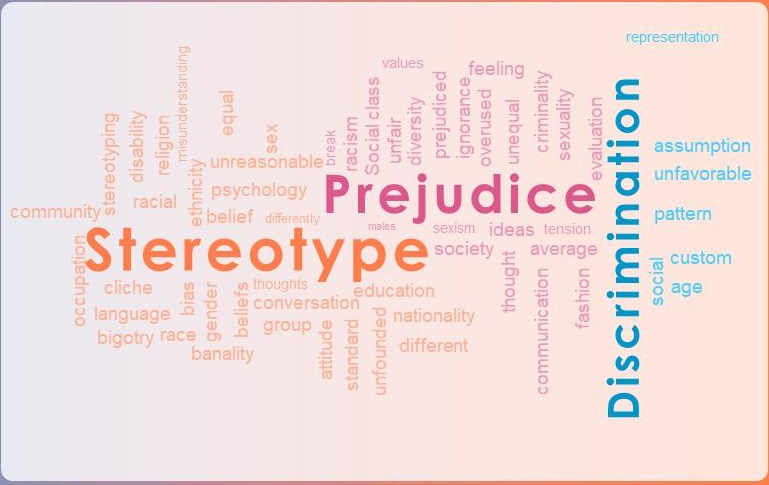The Unseen Puppeteer: Conformity's Grip on Our Lives
Conformity arises as an ever-present force in a world that continually pulls at the threads of individuality, subtly influencing our lives in ways we may not even be aware of. In every aspect of our lives, from our clothes to our beliefs, conformity influences our decisions and shapes our identities. A fine example of how conformity affects us in the presence of others is demonstrated in the experiment discussed in class, Asch's Line Judgement Experiment. In this blog, we'll explore the pervasive nature of conformity and its impact on various aspects of our lives.
 |
| Conformity in action [Image credits: learndojo.org/a-level/aqa-psychology/social-influence/] |
We are social beings who continuously seek the approval of our peers. We conform our ideas and actions to those of the group to fit in and not get ostracised. This form of influence that moulds us is called normative social influence. In the intricate dance of human interaction, normative social influence emerges as a powerful force, quietly shaping our lives and moulding our choices. This form of conformity stems from the basic human need for social approval and acceptance. Thus, we conform to the perceived norms of the group.
Conformity permeates every nook and cranny of our social tapestry. There is a subtle but pervasive push to conform to the standards wherever we go, whether in the classroom, the office, or even among our closest friends. The fear of standing out or being classified as unusual might force many to conform to established behaviour patterns, limiting their uniqueness subconsciously.
We shall now discuss the multifaceted ways in which conformity impacts our lives:
Peer Pressure:
The effects of peer pressure, a strong kind of conformity, are felt throughout a person's life, from childhood to maturity. People sometimes imitate their peers' hobbies, habits, and even ideals to fit in with the group. People's desire to be accepted can be shown in their willingness to adapt to prevailing fashion and lifestyle trends. When studying for tests or competitions, for instance, having a competent peer group can be helpful because even if one member of the group starts to lose motivation, they can always look to the rest of the group and mimic their actions and attitudes.
Role of Social Media:
Conformity finds new ways to creep into our lives in today's
social media and mass communication era. Individuals feel pressured to conform
to the unrealistic standards set by the perfectly designed images and
lifestyles portrayed on platforms like Instagram. People lose their
individuality in an effort to conform to the standards of their online
audience, which is a direct result of the pressure to generate new
"likes" and "validation constantly.
 |
| Conformity can make us to follow preset paths and not pave our new ways [Image credits: Illustration by Jene Rigaud] |
Cultural Conformity:
Conformity to cultural norms: cultural norms have a powerful influence on our thoughts and actions. Individuals might be pressured to conform to preset paths by societal expectations for gender roles, success, and even happiness. To deviate from these standards, one must actively seek to question and reimagine them.
The Workplace Dilemma:
In professional settings, conformity can be a double-edged sword. While a degree of conformity is essential for teamwork and organizational cohesion, an excessive adherence to norms can stifle creativity and innovation. The pressure to conform to corporate culture and expectations may lead individuals to suppress their unique perspectives, hindering the potential for groundbreaking ideas.
When trying something new:
In the vast ocean of human experience, the currents of conformity run deep, propelled by the subtle forces of informational influence. Unlike normative social influence, which stems from the desire for social acceptance, informational influence emerges from the fundamental human drive to make sense of the world and seek knowledge. When we embark on something new—a project, a hobby, or even a personal challenge—informational influence comes into play. The uncertainty that accompanies novelty triggers a natural inclination to seek guidance and understanding from others who possess more knowledge or experience in that domain. This quest for information and insight drives us to conform to established practices or advice.
Although social pressure to conform is ever-present, it's
essential to recognize its presence and strike a healthy balance between
blending in and standing out. A culture that respects individuality thrives in
an environment that celebrates diversity and authenticity. It's crucial to
create spaces where individuals feel empowered to challenge norms and
contribute their unique perspectives, ultimately enriching the collective
tapestry of human experience.
In sum, like an invisible hand, conformity guides our choices and shapes our interactions in subtle and profound ways. Understanding its influence allows us to navigate its impact consciously, fostering a society that celebrates diversity and individuality. Breaking free from the shackles of conformity requires courage, but the reward is a more vibrant and authentic existence where each thread contributes to a richer, more diverse societal fabric.

This blog takes a close look at conformity, revealing how it affects what we choose and how we interact with others. It talks about normative social influence, which is the strong force that makes us want to fit in for social approval. The blog explores how conformity shows up in peer pressure, social media, cultural norms, and the workplace, giving us a deeper understanding of its impact on our lives. It's a thought-provoking read that makes us think about creating a society that appreciates and values our differences. Thanks, Roshan, for highlighting this important aspect of our day-to-day lives.
ReplyDeleteA very inspiring message "we should not be afraid to stand out and be ourselves". In a world that is constantly pressuring us to conform, it is important to remember that our unique perspectives and experiences are what make us special...Thank for the motivation Roshan
ReplyDelete